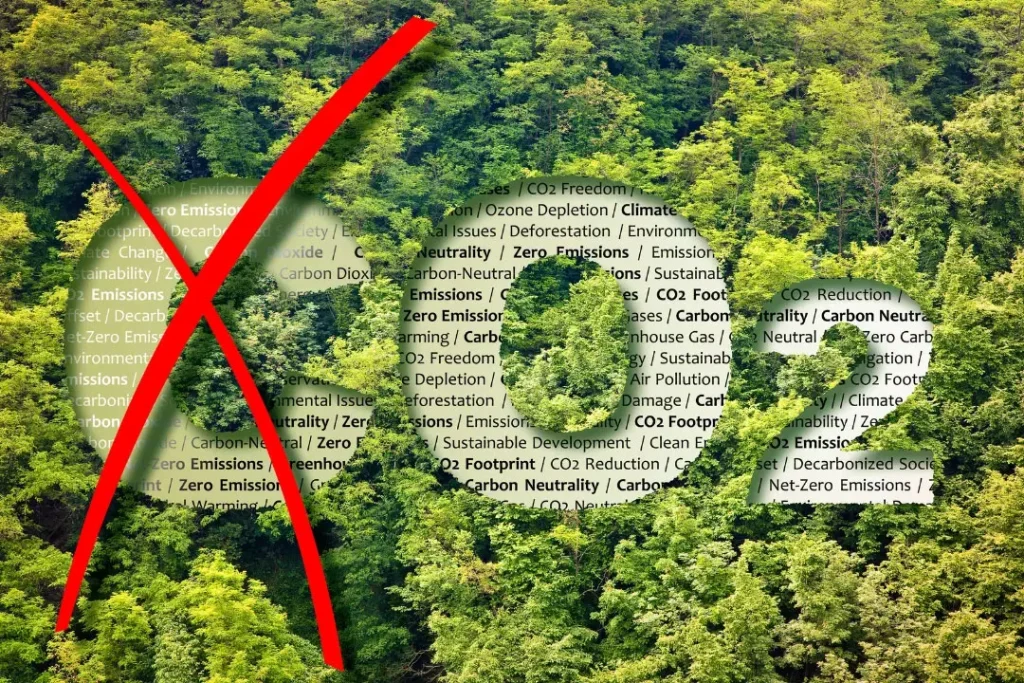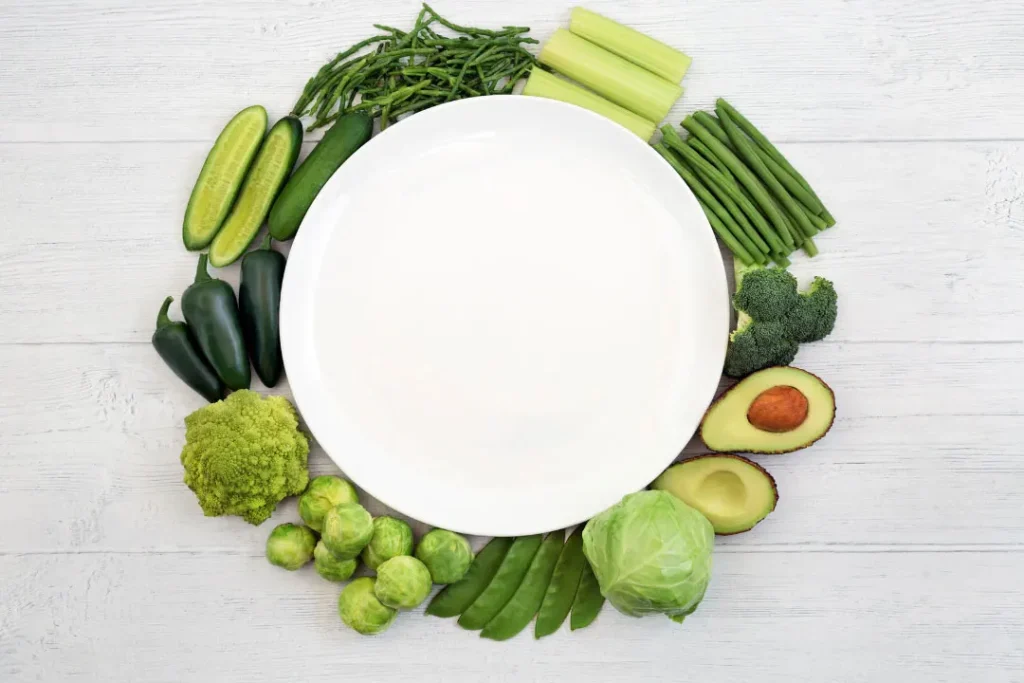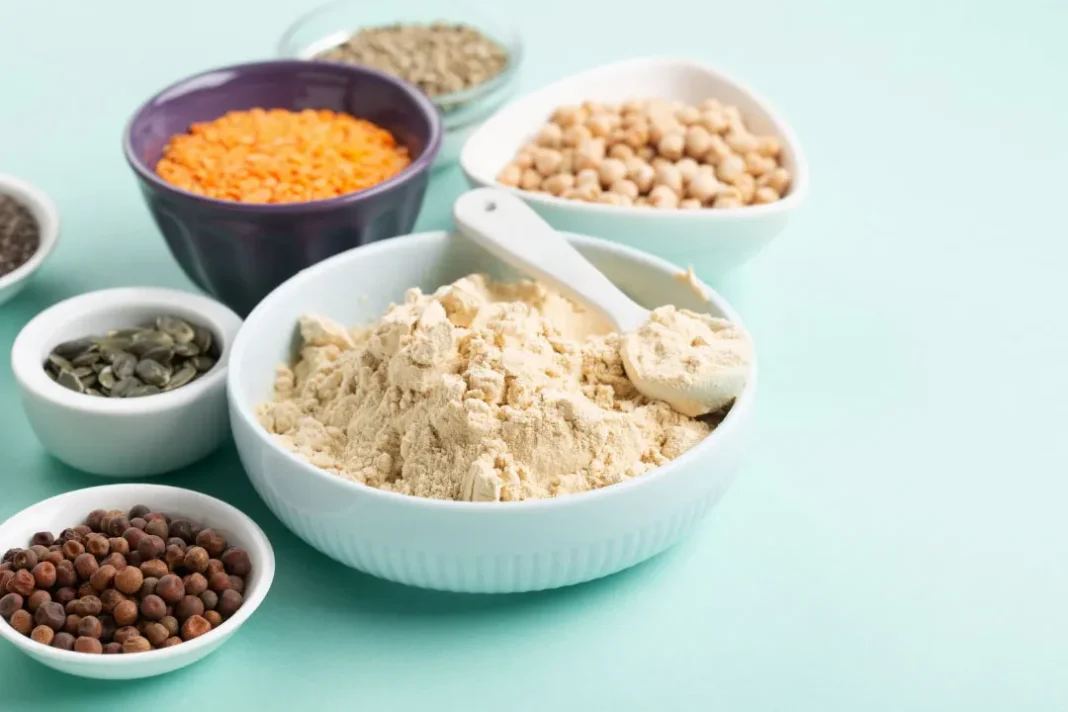Climate change is undeniable, and so is the fact that the way we eat is helping to cook the planet. Look at the extreme weather we’re dealing with this summer. Noxious smoke from raging wildfires has been blanketing large areas of the U.S., while torrential floods have been threatening people’s property, lives and livelihoods.
The evidence is clear. This summer our planet is enduring the hottest temperatures ever recorded. People are waking up to the fact that there is a connection between our behavior and the climate volatility we’re witnessing on earth.
You May Also Like:
Restore Your Wellness With a Gut Health Plant Based Diet
Botanical Blend Battle: Rating Green Drinks for Your Kitchen
Fuel Your Body, Fuel the Planet: How Vegan Pea Protein Powder Creates A Sustainable Future is an original (PlantBasedHealthNews) article.
Food is fueling greenhouse gas emissions
Food production emits carbon dioxide, methane, and other gasses that warm the planet. Overall emissions are equivalent to about 16 billion metric tons of carbon dioxide each year, or about 30 percent of greenhouse gas emissions worldwide. Meat eaters are among the biggest contributors to greenhouse gas emissions from food sources.
Research shows that people who ate more than 3.5 ounces of meat daily accounted for more than 22 pounds of carbon dioxide each day. People who ate less than 1.7 ounces of meat accounted for half that amount. Vegan diets had the lowest totals of greenhouse gas emissions, accounting for nearly 5.5 pounds of carbon dioxide a day.
It goes without saying that beef cattle and dairy cows leave an enormous environmental footprint. There are much better protein options available that are more sustainable. Plant proteins are more environmentally friendly and can be consumed whole or the proteins can be extracted and sold as supplements. Vegan pea protein powder is one of the most sustainable options available to those looking to reduce their environmental impact.

Vegan pea protein powder beats other plant proteins on sustainability
From a sustainability standpoint, peas are better than wheat, corn, and soy on the sustainability scale. Peas are among the plants with the lowest carbon footprint. It takes about 1.2 kg of CO2 emissions to produce 1 kilogram or 2.2 pounds of peas. That’s equivalent to a car driving 2.75 miles.
How vegan pea protein powder can create a more sustainable future
Reduced greenhouse gas emissions: The production of vegan pea protein powder produces much lower greenhouse gas emissions when compared to livestock. A diet rich in vegan pea protein powder can be incredibly low-carbon. Producing 100g of protein from peas emits just 0.4 kg of carbon dioxide emissions. That’s about 90 times less than getting the same amount of protein from beef.
Sustainable farming practices: Pea crops can be rotated with other crops, which helps to sustain the health of the soil and reduce the need for fertilizers and pesticides. The reason that peas are ideal for crop rotation is that they can take nitrogen gas from the air and store it in their root system. Crop rotation reduces the environmental impact of farming.
Biodiversity preservation: Plant-based protein production is much kinder to the environment. When compared to animal agriculture, it is much less destructive to habitat and involves less deforestation. Preserving natural habitats is vital to protecting the earth’s biodiversity and ecosystems. There needs to be a better and more sustainable balance between humans and nature around us.
Water conservation: Pea plants require less water than animal agriculture and other plant sources. For instance, it takes nearly 200 gallons of water to produce one pound of soybeans. But it only takes 36 gallons of water to produce one pound of peas. Pea production consumes less water and takes the pressure off our precious sources of freshwater. Another reason that peas require less water than other plants is that they are more adaptable to drought conditions.
Reduced pressure on fisheries: Overfishing is threatening our marine ecosystems. But if consumers turned to plant-based protein, including supplements such as vegan pea protein powder, it can significantly reduce the demand for fish products and help protect marine diversity.
Animal welfare: Many people simply can’t stomach the thought of killing animals so that they can be consumed by humans. More than 93 billion land animals are bred, reared, and slaughtered for food each year around the globe. The positive impact on sustainability would be enormous if that number were reduced.
Food security: With the population on the planet growing, there is increased pressure to find more sustainable and efficient sources of protein. If the amount of protein being consumed is deficient, people can always turn to a protein supplement like vegan pea protein powder to boost their protein intake. Supplements are a reliable and sustainable source of protein.

Vegan pea protein powder – vital nutrients
Extracted from yellow peas, vegan pea protein powder is packed with nutrients. It’s a high-quality protein and a great source of iron. Vegan pea protein powder contains all nine essential amino acids and is also a great source of branched-chain amino acids, especially arginine for healthy blood flow and heart health. It may be low in methionine, but you can compensate for that by eating eggs, fish, and poultry.
Vegan pea protein powder – health benefits
Studies show that when paired with resistance training, vegan pea protein powder can help build muscle. It can be just as effective as less sustainable dairy-based whey protein. Vegan pea protein powder may help you lose weight because protein keeps you feeling fuller, longer. It’s also good for heart health.
Some animal studies have shown that vegan pea protein powder can lower cholesterol and high blood pressure, the risk factors for heart disease. Some research suggests that eating a plant-based diet one day a week can help prevent or reverse chronic health conditions.

Healthy Truth Go Pro vegan pea protein powder
Healthy Truth Go Pro vegan pea protein powder has been recognized as one of the best and most reputable sources for high-quality pea protein. In addition to vegan pea protein powder, Healthy Truth’s Go Pro vegan pea protein powder contains brown rice and sacha inchi, which is a protein made from seeds.
Heathy Truth Go Pro is a 100% plant-based protein that also contains adaptogens and prebiotics. The product blend helps build lean muscle, support digestion, reduce stress and alleviate muscle damage caused by exercise. Healthy Truth believes that the health of your entire body is crucial to building muscle in an effective and sustainable way. Their products do not contain artificial colors or preservatives and every ingredient is sustainably sourced.
Eating healthier while saving the planet – Conclusion
Switching to a plant-based protein source like vegan pea protein powder can be an important step in moving towards a more sustainable food system. By making informed food choices, we can all work together to create a healthier planet and more sustainable future.

For further reading:
New York Times: Meat is a big climate issue, what about dairy?
Forbes: Here’s the latest data on climate and food and it’s not good
CNN: Farms are wasting $1 billion worth of food, that’s a disaster for the climate
Times Magazine: Dinner as we know it is hurting the planet
Harvard Magazine: Climate change and crops
Important Note: The information contained in this article is for general informational purposes only and should not be construed as health or medical advice, nor is it intended to diagnose, prevent, treat, or cure any disease or health condition. Before embarking on any diet, fitness regimen, or program of nutritional supplementation, it is advisable to consult your healthcare professional in order to determine its safety and probable efficacy in terms of your individual state of health.
Regarding Nutritional Supplements Or Other Non-Prescription Health Products: If any nutritional supplements or other non-prescription health products are mentioned in the foregoing article, any claims or statements made about them have not be evaluated by the U.S. Food and Drug Administration, and such nutritional supplements or other health products are not intended to diagnose, treat, cure, or prevent any disease.
